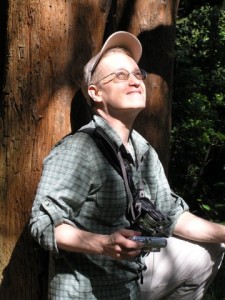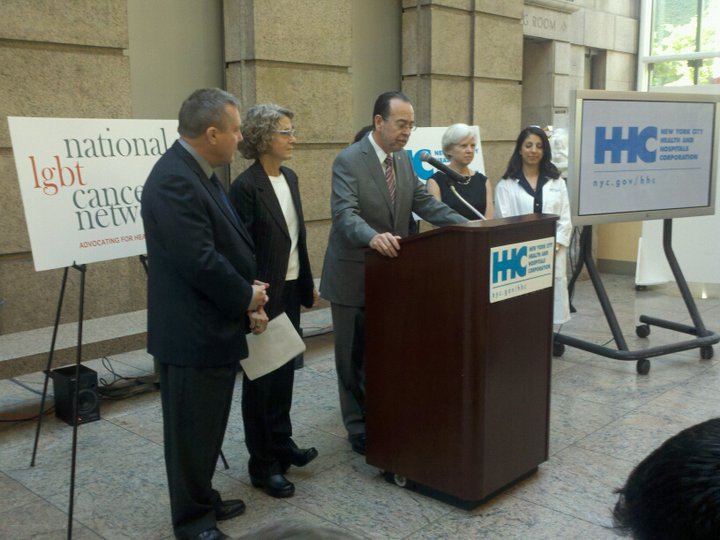 This post was written by Liz Margolies, LCSW, Executive Director of the National LGBT Cancer Network.
This post was written by Liz Margolies, LCSW, Executive Director of the National LGBT Cancer Network.
In 2013, the National LGBT Cancer Network and LGBT HealthLink surveyed over 300 LGBTQ-identified cancer survivors and found that, overwhelmingly, our communities needed LGBTQ-targeted support. Mainstream, “straight-identified” cancer support groups too often left our people’s cancer experiences shut out of the dialogue. LGBTQ survivors also told us that doctors were not open enough to our needs and sometimes were overtly hostile. Cancer support groups by and for LGBTQ members were the number one request made by survivors who participated in our survey.
So, in 2014, the National LGBT Cancer Network decided to do something about it. With funding and support from the New York State Department of Health, we launched our Support Groups for Survivors, a series of free online support groups for LGBTQ people with cancer, available 24 hours a day. Since that initial pilot group, we have had multiple groups for lesbian and bisexual women, gay and bisexual men, and transgender people, all of whom have experienced a cancer diagnosis and came to us looking for the support of their communities.

Transgender cancer survivor and friend of the National LGBT Cancer Network Jay Kallio
As a moderator of these forums, I have been struck by the voices and the experiences of the LGBTQ elders who come to the group. They arrive scared, anxious, and lonely, but many quickly find “virtual” friends with whom they laugh, cry, and share their feelings openly on a daily basis. Some have previously attended other mainstream support groups and found them lacking. As one survivor wrote, “I’m always the sole lesbian [in my other support groups]. I’m just more comfortable in an LGBT setting.”
Not only did our group members share LGBTQ-specific issues with each other, but everything that mattered to them poured out once they felt they were safe to express themselves. For example, one survivor shared the loss of her beloved step-father with the group and the weeks of pain and grief she has been experiencing as a result. Multiple group members reached out to her in a variety of ways. “I don’t know the ‘right’ words to say to help ease your pain,” responded one member. “Just that I care. I care about how you feel, what you’re going through, and how you’re doing day by day.”
Many of the LGBTQ elders who have joined the groups have commented on how lonely and isolating the experience of having cancer has been for them. Some do not have partners; others do not have living family with whom they are in communication. Still others are isolated as a function of illness, disability, and geographic distance. We like to think that the online nature of our groups allows people to reach out 24/7 to other LGBTQ survivors around the country and not feel so alone, both physically and in the experience of being LGBTQ cancer survivors. One interaction between group members was particularly striking:
“In so many ways cancer has destroyed my life… I haven’t always felt this way. Sometimes I feel I can fight, but lately so much is getting the better of me. It might be best for me to sit out some of this round of postings as I have no real positives to give to anyone at this time. I am barely keeping me going right now… I don’t feel I have a lot to give to you ladies right now. Cancer has taken so much from me.”
Then, this was posted in response:
“I don’t think one needs to be positive to post! For me, this is a journal of sorts, a place to express your feelings, whatever they may be a the moment, and just knowing someone else is out there, whether there’s a reply or not, might just offer a glimmer of hope. We’re all in this in our own ways. We feel what we feel. It’s OK. So please don’t stop for that reason.”

Liz and the National LGBT Cancer Network presenting a groundbreaking partnership for LGBTQ healthcare with New York City Health and Hospitals Corporation
In honor of National Minority Cancer Awareness Week, we hope that more services like our Support Groups for Survivors will be developed to better meet the needs of other underserved populations. If you or someone you know needs LGBTQ cancer support, please visit our website at www.cancer-network.org.
The opinions expressed in this article are those of the author and do not necessarily reflect those of the Diverse Elders Coalition.

